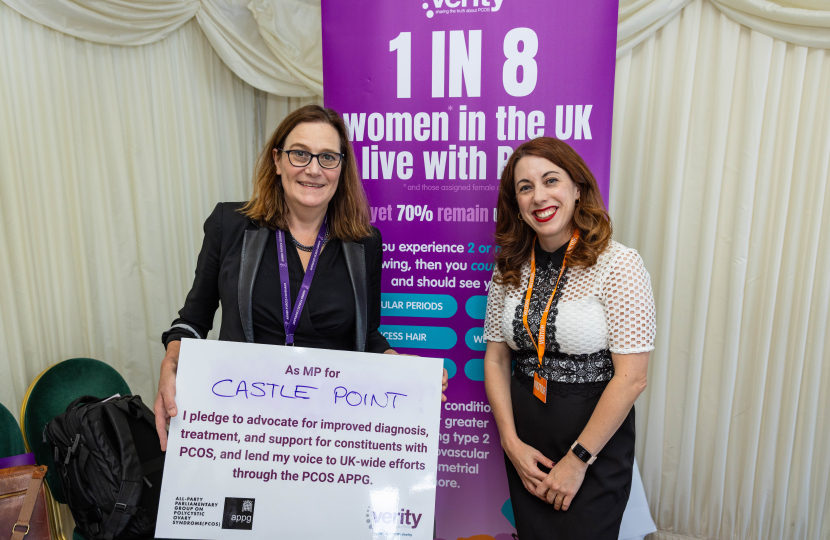
🚺 Rebecca Harris MP Welcomes Launch of Landmark PCOS Report in Parliament
Rebecca Harris, MP for Castle Point, has welcomed the launch of the first ever parliamentary report on Polycystic Ovary Syndrome (PCOS), published this week by the All-Party Parliamentary Group (APPG) on PCOS.
1 in 8 women in the UK are living with PCOS. Symptoms include irregular periods, excess hair, acne, alopecia, weight management difficulties, depression and anxiety. PCOS also carries increased risks during pregnancy, and of developing type 2 diabetes, sleep apnoea, fatty liver disease, cardiovascular disease and endometrial cancer.
If the condition is if not properly managed, it can lead to additional health problems in later life and is one of the leading causes of fertility problems in women.
The report, Breaking the Cycle: Addressing Systemic Failures in PCOS Diagnosis and Management, sets out urgent reforms needed to improve diagnosis, treatment, and support for the 1 in 8 women affected by PCOS in the UK.
The report calls for PCOS to be recognised as a chronic, multisystem condition and sets out recommendations including a national diagnostic pathway, integration of PCOS care into Women’s Health Hubs, and improved training for healthcare professionals.
The full report is available to view at: https://www.pcosappg.co.uk/2025-report-breaking-the-cycle.
Speaking at the launch, Rebecca Harris MP said: "This is an important moment for women’s health. For too long, PCOS has been overlooked, leaving patients waiting years for a diagnosis, struggling with fragmented care, and too often feeling dismissed. This report gives a clear roadmap for change, and I will be pressing Ministers to act on its recommendations.
"In Castle Point, I know many will welcome this work - I hear regularly from people facing the stress and frustration of living with PCOS without the support they need.
"This report is a milestone, but now we need action. I urge the Government to read it, take its recommendations seriously, and ensure that PCOS is no longer pushed to the margins of our health system."
